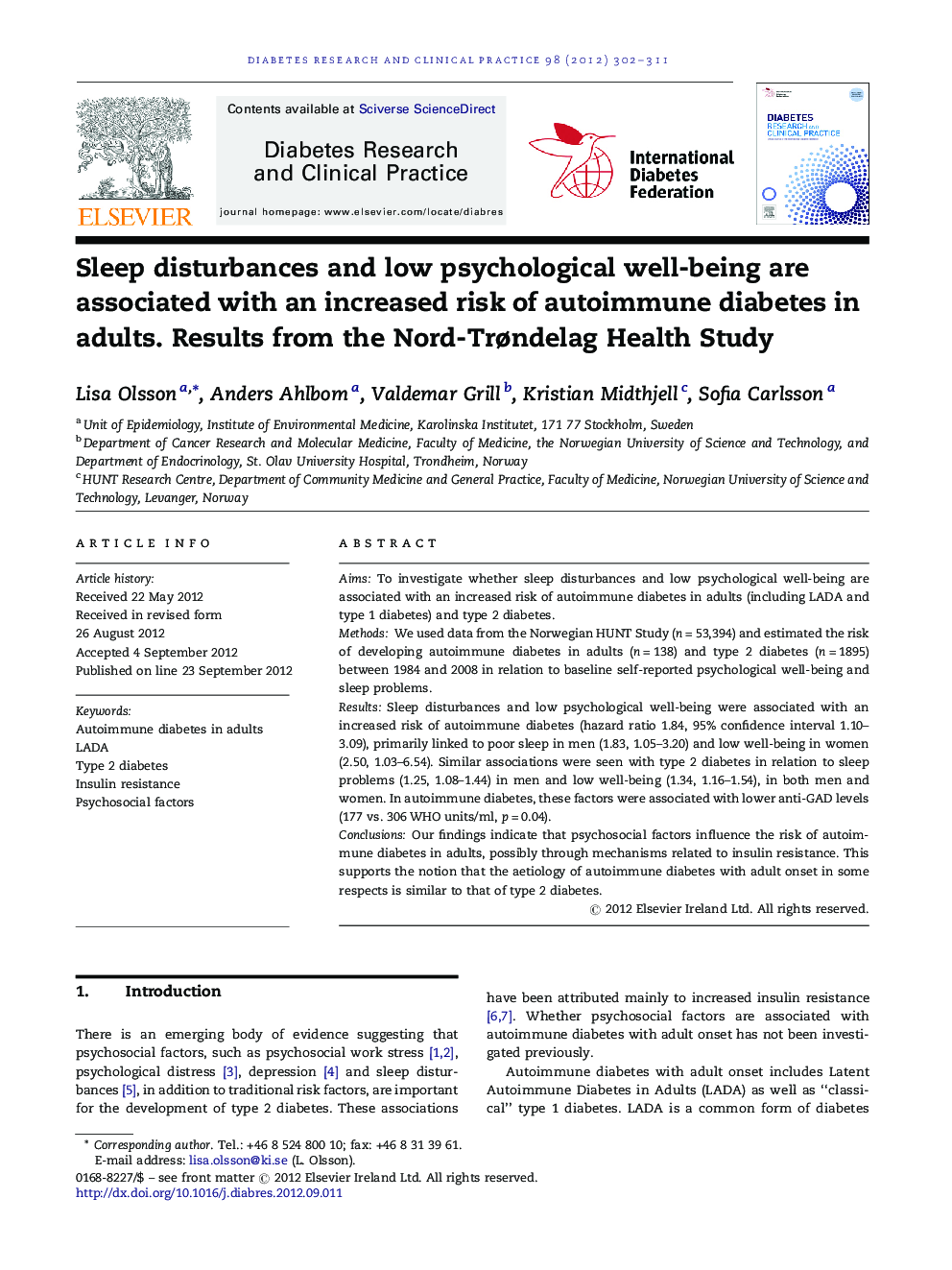| کد مقاله | کد نشریه | سال انتشار | مقاله انگلیسی | نسخه تمام متن |
|---|---|---|---|---|
| 2796865 | 1155624 | 2012 | 10 صفحه PDF | دانلود رایگان |

AimsTo investigate whether sleep disturbances and low psychological well-being are associated with an increased risk of autoimmune diabetes in adults (including LADA and type 1 diabetes) and type 2 diabetes.MethodsWe used data from the Norwegian HUNT Study (n = 53,394) and estimated the risk of developing autoimmune diabetes in adults (n = 138) and type 2 diabetes (n = 1895) between 1984 and 2008 in relation to baseline self-reported psychological well-being and sleep problems.ResultsSleep disturbances and low psychological well-being were associated with an increased risk of autoimmune diabetes (hazard ratio 1.84, 95% confidence interval 1.10–3.09), primarily linked to poor sleep in men (1.83, 1.05–3.20) and low well-being in women (2.50, 1.03–6.54). Similar associations were seen with type 2 diabetes in relation to sleep problems (1.25, 1.08–1.44) in men and low well-being (1.34, 1.16–1.54), in both men and women. In autoimmune diabetes, these factors were associated with lower anti-GAD levels (177 vs. 306 WHO units/ml, p = 0.04).ConclusionsOur findings indicate that psychosocial factors influence the risk of autoimmune diabetes in adults, possibly through mechanisms related to insulin resistance. This supports the notion that the aetiology of autoimmune diabetes with adult onset in some respects is similar to that of type 2 diabetes.
Journal: Diabetes Research and Clinical Practice - Volume 98, Issue 2, November 2012, Pages 302–311